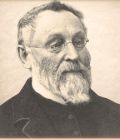COMMON NAME:
INDIAN TURNIP.
Symptoms
Coryza: acrid, fluent; nostrils raw (Arsenicum, Natrum muriaticum, Acid nitricum, Rhus_T.)(<)
CORYZA, PARTICULARLY AFFECTING THE LEFT NOSTRIL (All-C., Jug-C., Mang.) (K.).
Coryza, especially in the afternoon (Calcarea phos., Kali carb., Mag-S., Plb., Sulphur; especially during evening- All-C.). (K.).
CORYZA DURING DIPHTHERIA (Amm-C., Arsenicum, Carb-Ac., Kali bichromicum, Merc-c., Merc-Cy., Mur-Ac., Acid nitricum) (K.).
Nose feels stopped up, inspite of the watery discharge (Ann-C., Sambucus, Sinap). (A.).
Sneezing, worse at night (A.).
EXCORIATING (NASAL) DISCHARGE; THE NOSE IS VERY SORE AND EXCORIATED (D.).
CONSTANTLY PICKING THE NOSE, UNTIL IT BLEEDS (Cina, Conium, Lachesis) (Bl.).
Boring with the finger into the side of the nose (Aurum, Bufo, Cina, Phosphorus, Phos- Ac., Stict., Veratrum, (Zincum met.). (A.).
Hoarseness and rawness in the larynx (Causticum, Phosphorus). the control over the voice is lost (amm-Caust); the voice suddenly changes; dry cough; the patient cringes under it, it hurts so (D.).
An excellent remedy in clergyman’s sore throat.
Must breathe with the mouth open (Ant-T., Hyoscyamus, Lachesis, Lycopodium, Opium, Sulphur). (Bl.).
sore throat of public speakers (Argentum nitricum,) (Bl.).
PICKS LIPS UNTIL THEY BLEED (Bryonia, Cina, Conium, Helleborus, Acid nitricum, Nux vomica, Acid phosphoricum., Rheum., Zincum met.). (Ac.,).
CORNERS OF THE MOUTH SORE CRACKED, AND BLEEDING (A.).
Diphtheria the mouth and fauces are covered with a deposit. Ulcers are to be seen at different points. The secretions are acid and excoriating. The glands of the neck are swollen and painful (Bl.).
Excessive salivation; saliva acrid.
Throat sore; feels as if excoriated; cannot swallow.
Has relieved cases of stomatitis, when there are burning pains and excessive salivation. The mucus surfaces are raw and sore; the tongue is red, like a beet, and the papillae are prominent (Bl.).
Swelling of the sub-maxillary glands. The corners of the mouth, buccal cavity, and even the throat become raw and sore, emitting blood; so sore in fact, that the patient refuses all food and drink, in consequence of the suffering occasioned by mastication of swallowing (G.).
Putrid odour emanating from the mouth (Arsenicum, Aurum, Baptisia, Carbo vegetabilis, Kali-P., Lachesis, Mur-Ac., Acid nitricum). (G.).
DISCHARGE OF BURNING, ICHOROUS FLUID FROM THE NOSE, EXCORIATING THE NOSTRILS AND UPPER LIP.
Accumulation of mucus in the trachea (Calcarea, Ipecac., Kali bichromicum, Lycopodium, nat-S.).
After a long paroxysm of cough, he raises mucus, traversed with yellow threads (Dg.).
EXANTHEMATA LIKE SCARLET-RASH; THE SKIN PEELS OFF AFTERWARDS.
Bites nails until finger bleed (A.).
Patients pick and bore into the raw bleeding surfaces, though very painful; scream with pain, but keep up the boring (in diphtheria, scarlatina, or typhoid) (A.).
Excessively cross and stubborn (B.).
Mouth burns and is so sore that they refuse to drink, and cry when anything is offered (N.).
Chronic hoarseness, from speaking or singing (clergyman’s sore throat, acute cases-Ferr-P., Rhus toxicodendron). (Arg-M.). (N.).
Urine scanty or suppressed, in scarlatina (C.).
AGGRAVATION:
From north-west wind, from lying down; during night; from talking, speaking or singing; and in the afternoon.
AMELIORATION:
From warmth.
RELATIONSHIP:
Useful after Hepar and Acid nitricum in dry, hoarse, croupy cough; after Causticum, and Hepar in morning hoarseness and deafness, and in scarlatina.
Similar to: Ailanthus, All-C., Amm-C., Arsenicum, Borax, Cina, Merc-C., Nit-Ac, and Sulph.
ANTIDOTES: Butter milk; also Acet-Ac, and Pulsatilla


